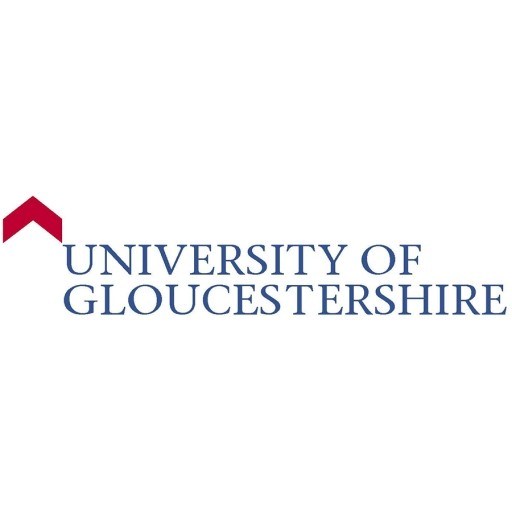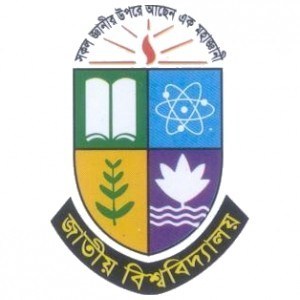Combine your Foundation and Diploma for direct entry to the second year of a degree in areas such as Events, Hotel and Resort, Sports and Tourism Management
The Composite Diploma in Hospitality, Events and Tourism combines academic study, intensive English language teaching and study skills to prepare you for entry into the second year of a university degree in the UK.
Why apply for the composite diploma programme?
- guaranteed university placement for all successful students
- a continuous six term programme from pre-university study to the second year of undergraduate study
- a quality-assured university programme
- full university status
- a conditional offer of a place on the second year of a relevant undergraduate degree at the University of Gloucestershire
- a campus-based programme with access to university facilities
- professional support and guidance with university applications
- the highest levels of personal care and support
Course length: 6 terms
When can I start?
- September Start (6 terms)
Mon 30 Sep 2013 to Fri 12 Jun 2015
£17,990
- January Start (6 terms)
Mon 06 Jan 2014 to Fri 12 Jun 2015
£17,990
- April Start (6 terms)
Mon 07 Apr 2014 to Fri 28 Aug 2015
£17,990
You will study the following modules:
English Language for Foundation Study
- You will develop your overall English language level, including your grammar and vocabulary, as well as your specific skills in reading, listening, writing and speaking, which will prepare you for further academic study.
Study Skills for Foundation Study
- This module will introduce you to the generic study skills necessary for successful undergraduate study. You'l receive an appraisal of your learning style and development needs and introduced to a range of introductory skills, such as time management, how to access resources both online and on-site, how to approach academic presentations, how to tackle and write assignments, apply mathematics and understand learning styles.
Academic Skills for Foundation Study
- Through this module you will be supported in applying academic skills in the context of your chosen subject area. You will learn how to interpret and analyse a range of subject-related information, structure and plan academic work, find and use relevant resources, and communicate effectively using appropriate academic conventions.
Investigating the Leisure Industries
- In this module you will be introduced to the size and scope of those industries that make up the leisure sector within the UK, namely the hospitality, events, sports and tourism industries, and the diverse nature and variety of those sectors. You will also gain an understanding of the value of these sectors to the UK economy and the range of employment opportunities that they offer. As part of your studies, you will have the opportunity to visit local leisure sector providers, giving you a better understanding of the diversity and size of the businesses involved.
Operational Skills for Hospitality, Events and Tourism Industries
- The module introduces you to a range of practical skills and attributes that a manager in the leisure industries will need in order to accomplish tasks effectively. You will develop an understanding of the relationships between event operations and the event experience, as well as an appreciation of the operational constraints under which managers are engaged. You will also have the opportunity to develop a range of employability skills, including communication and literacy, problem-solving, and independent learning and working, and the opportunity to practise them in a range of simulated settings.
The UK as a Destination
- This module introduces you to the UK as a destination, exploring the importance of the UKs historical, cultural and sporting heritage as key reasons for visiting the UK. It will highlight to you key towns, cities and events, and the impact they have on inbound and domestic tourism.
Terms 4-6
You will study the following modules:
English Language for Undergraduate Study
- Essential preparation for university life, the Study Skills module will help you develop the necessary skills for undergraduate-level study by providing support with group work, presentations, research methods, note taking in lectures, structuring assignments and understanding methods of self-evaluation.
Academic Skills for Undergraduate Study
- English language is a core subject in the International Diploma programme, covering reading, writing, listening and speaking. The module ensures that students reach the entry requirement for the second year of a degree course.
You will choose from the following specialist modules:
Celebratory and Lifestyle Events
OR
- This module introduces the niche sector of special events concerned with celebration and marking life stages. The module considers the important function that celebration and rites of passage play within the structuring of human society and how trends and shifts might influences the demand for, and format of, such events.
- Topics covered include: the history of celebration and festivity; celebratory events as markers of life stage and calendar; cultural awareness; how changing social structures influence the form and expression of celebration; the rise of a modern special events industry; influences on consumer behaviour for celebratory events.
Hotel and Resort Business Environment
OR
- This module explores the wider business environment within which resort hotels operate. It will introduce you to the external environment and the impact this has on the hotel and resort business and what the business can do to address this.
- The module will examine the political, economic, socio-cultural and technological landscape and how this impacts upon business. It will also explore the operational environment that consists of suppliers, competitors and the labour market, and how hotel and resort businesses can attempt to manage change in light of external pressures.
Experiencing Tourism
- This module identifies the meaning of tourism management and the key issues that managers must engage with to ensure the successful operation of their business. This also includes developing a sound awareness of tourist motivation and purchasing behaviour and how this is utilised by managers to develop new tourism products. Key field data collection skills of project planning, recording interviews and observations, and self-reflection are also taught and put into practice.
Introduction to Events Management Specialisms
OR
- This module introduces a range of specialist contexts for events management work and considers the synergies and contrasts between niche sectors of the events industry, such as business, music and sporting events. The nature of work in each sector, and the trends that influence the shape of events will be outlined.
- Topics covered include: understanding the range of providers and participants in the niche sectors of the events industry; comparing and contrasting a range of events sectors; mapping trends, issues and impacts on the range of niche sectors; the financing and funding specific to each niche sector; and management competencies and skills required in each sector.
Hotel and Resort Operations
OR
- This module will explore the complexities and the unique nature of the hotel and resort industries. The module offers a fundamental approach to the operations of hotel and resort properties. Topics covered include: customer service, provision of food and beverages, spa, gaming and recreational activities, guest reception, accommodation services, security, control, and facilities planning, maintenance and sustainability.
Tourism in the World
- The aim of the module is to enable you to identify the key features of the contemporary tourism sector, its product base and management. Analysis of the tourism sector is conducted at local, regional and international levels.
- The module investigates the contemporary tourism sector by establishing its historical context and interpreting this through the use of models, an understanding of destination development, the roles of key national and globally influential organisations and demand and supply relationships. The environment is interpreted as a resource used in tourism. Culture and its place within tourism products is also analysed through the use of case studies of regional and global significance.
Principles of Events Management
OR
- This module introduces key principles that underpin events management and the characteristics of the events industry. It places events within a broader context and examines the relationship between events and society at local, regional, national and international levels. Topics covered include: classification of events; history of events; typologies and models of events management; key management skills and competencies; and event impacts.
Introduction to the Hotel and Resort Sector
OR
- This module introduces the key principles behind hotel and resort management. It will explore the historical developments and global demand trends in the hotel and resort sectors. You will also develop an understanding of the changes taking place in key markets such as leisure, business conferences, events, and consider the implications for the hotel and resort providers.
- The module offers a fundamental approach to hotel and resort management. Beginning with a historical background to the sectors, the module then introduces you to more contemporary trends including: consumer expectations, hotel and resort product design, pricing and distribution.
The Travel Package
- The aim of this module is to identify and analyse the role of travel, transport and intermediaries in the tourism system. The tourism system acts as a framework for interpreting the relationship between travel, transport and tourism. Tourism flows, the modes of transport, the use of terminals and the key regulatory organisations and their processes are all identified and interpreted in terms of their place in tourism access and travel products. The wider socioenvironmental impacts of transport in tourism are also identified and analysed along with the transport sector responses.
Principles of Resource Management
- The aim of this module is to provide you with knowledge of the basic procedures and techniques used in the management of financial and human resources within the leisure industries, including events, hospitality, leisure, tourism and sport. The emphasis of study will be on how human resource and financial issues influence management decision making in an operational context.
- Key topics covered are those related to recruitment, selection, training and retention of staff, basic accounting practice and procedures and key legal aspects applicable to human and financial resources.
Skills in the Workplace
- This module enables you to gain first-hand experience of working within a professional context. It aims to give you an understanding of what constitutes employability, how to define and communicate your expertise and knowledge, and how to translate theoretical and practical knowledge into professional skills. It also aims to encourage you to develop beneficial connections within a professional context, and to reflect upon how the experience gained can be used towards your career aspirations.
Understanding Consumers in Society
- This module provides an integrated approach to the study of societal values, culture, lifestyles, ethics and consumption in the leisure sector. The module establishes a theoretical underpinning in societys consumption of leisure products and services, using a range of academic and management ideas. It introduces the historical and contemporary drivers of consumer behaviour, and the challenges of managing it in an environment that increasingly emphasises the ethical and sustainable dimensions of peoples leisure behaviour and consumption patterns. Perspectives are derived from the fields of sociology, psychology, ethics, and sustainability to situate the consumer behaviour concept, and to identify how providers respond to people as their consumers, and potential consumers.
How will I be assessed?
Grades from the Composite Diploma programme do not count towards your final degree, but help the University determine whether you meet the specified progression grades for entry to your chosen degree programme.
Assessment is both formal and informal. Informally, you will receive advice and feedback throughout your programme from your teachers. You will also be assessed by a combination of examinations and coursework, including written assignments, reports, practical exercises, group and individual research projects, design projects, presentations, and problem-solving exercises.
Audience
The Composite Diploma is suitable for international students who have completed secondary school education in their own country, who do not meet the academic or English language requirements for direct entry to the University of Gloucestershire and are looking for a supported progression through to the second year of degree study.
Scholarships
High achievement is important to INTO and its students. We reward the academic success of the best students and in 2010 gave over £1m in scholarships that helped fund their studies.
If you have a strong academic record you will have the opportunity to apply for an INTO scholarship. These recognise those that have worked hard to join us and have the potential to go on to study at the highest levels. Every study centre offers scholarships and each application is considered with great care.








